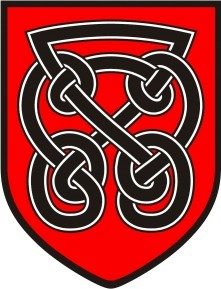
Curriculum
Key Stage Three
At Key Stage 3 students will study the major world religions and a variety of ethical and philosophical issues including through the lens of community and influence. Throughout Key Stage 3 students will look at religious viewpoints on issues and evaluate them in light of their own understanding of the world. Students study 3 units a year and complete an assessment at the end of each unit, these take a variety of different forms including written assessments and creative assessments.
Year 7 – Religion and Community
Introduction to Philosophy & Ethics and the Religions of Hitchin
Community and Promises; Khalsa & Covenant
The Environment; Creation and Ethics
Year 8 – Religion and Influence
Ultimate Questions; Life and Death
Buddhism through Stories
People and Actions; MLK & Malcolm X
Year 9 – Religion in Modern Life
Family Life
New Religious Movements
Medical Ethics
Key Stage Four
Students can opt to complete GCSE. We follow the AQA A specification.
The topics studied include:
- Christianity (including different denominations in Christianity, the importance of Jesus and the Trinity)
- Islam (including Sunni and Shia Islam, the importance of Prophethood and the oneness of Allah)
- Relationships and Family (including sex, marriage and divorce)
- Religion and Life (including abortion and euthanasia)
- Religion, Peace and Conflict (including violence, WMD and pacifism)
- Christianity and Worship (including festivals and the role of the Church in the local and worldwide community)
- Islam and Worship (including the Five Pillars of Islam and Muslim festivals)
- The existence of God and Revelation (including the arguments for the existence of God and their weaknesses)
The assessment will be 2 x 1 ¾ hour exams at the end of the course.
Students who do not study the full GCSE will have one lesson a fortnight where they will study the following topics:
- Philosophy
- Politics
- Economics
This lesson will not be examined and there is no formal qualification, but students will be expected to complete in-class assessments over the two years. Students may occasionally be asked to complete homework, but this will not be set regularly.
Key Stage Five
At Key Stage 5 students study the AQA Philosophy and Ethics A Level. The course is split into two components.
Component One: Philosophy and Ethics
- Arguments for the existence of God
- Evil and suffering
- Religious experience
- Religious language
- Miracles
- Self and life after death
- Ethical theories
- Issues of human life and death
- Issues of animal life and death
- Introduction to meta ethics
- Free will and moral responsibility
- Conscience
- Bentham and Kant.
Component Two: Study of Christianity
Section A: Study of Christianity
- Sources of wisdom and authority
- God/gods/ultimate reality
- Self, death and the afterlife
- Good conduct and key moral principles
- Expression of religious identity
- Religion, gender and sexuality
- Religion and science
- Religion and secularisation
- Religion and religious pluralism
Section B: The dialogue between philosophy of religion and religion
- How religion is influenced by, and has an influence on, philosophy of religion in relation to the issues studied.
Section C: The dialogue between ethical studies and religion.
- How religion is influenced by, and has an influence on, ethical studies in relation to the issues studied.
Each component is worth 50% of the A Level and is assessed in a 3-hour exam.
Enrichment
In order to continue to further your education in P&E see if you can visit a variety of places of worship and keep up to date on Religious news in the world.
Careers
- Public Sector jobs including social worker, police officer and teacher
- Charity Officer
- Medical Profession (dealing with ethics)
- International Aid/ Development worker
- Counsellor
- Youth Officer
- PR Manager
Staff
- Miss Carly Watkins – Head of Department
- Mr Rob Findon – Teacher of P&E and Social Sciences; Head of Year 10; DofE Award Coordinator
Links
http://www.alevelphilosophy.co.uk/
www.bbc.co.uk/schools/gcsebitesize/re
You have a legal right to withdraw your child from Philosophy and Ethics but please note that you will be expected to provide work for your child of a spiritual nature during this time. This time should not be seen as an opportunity for your child to ‘catch up’ on other work (please see the ‘Right to Withdraw Policy based on guidance provided by Hertfordshire County Council Sacre).
